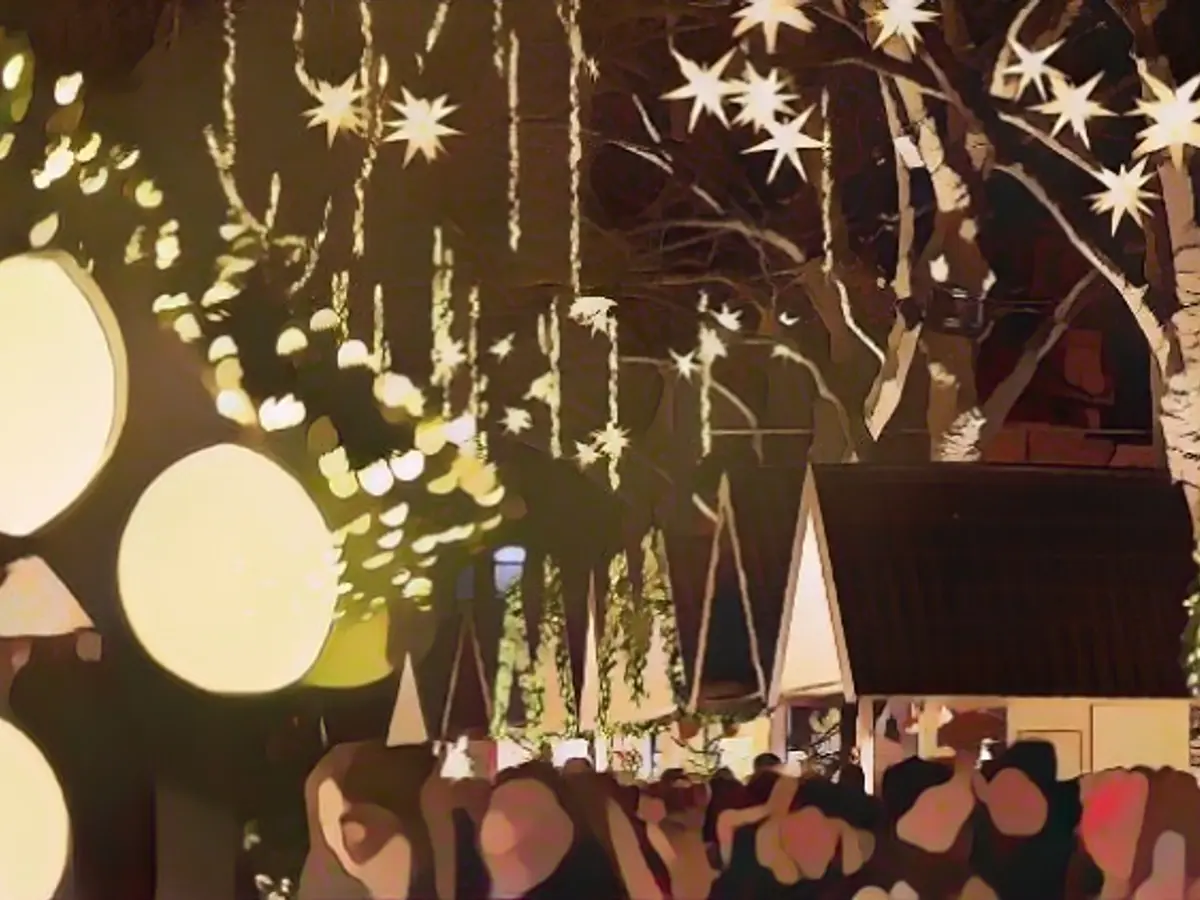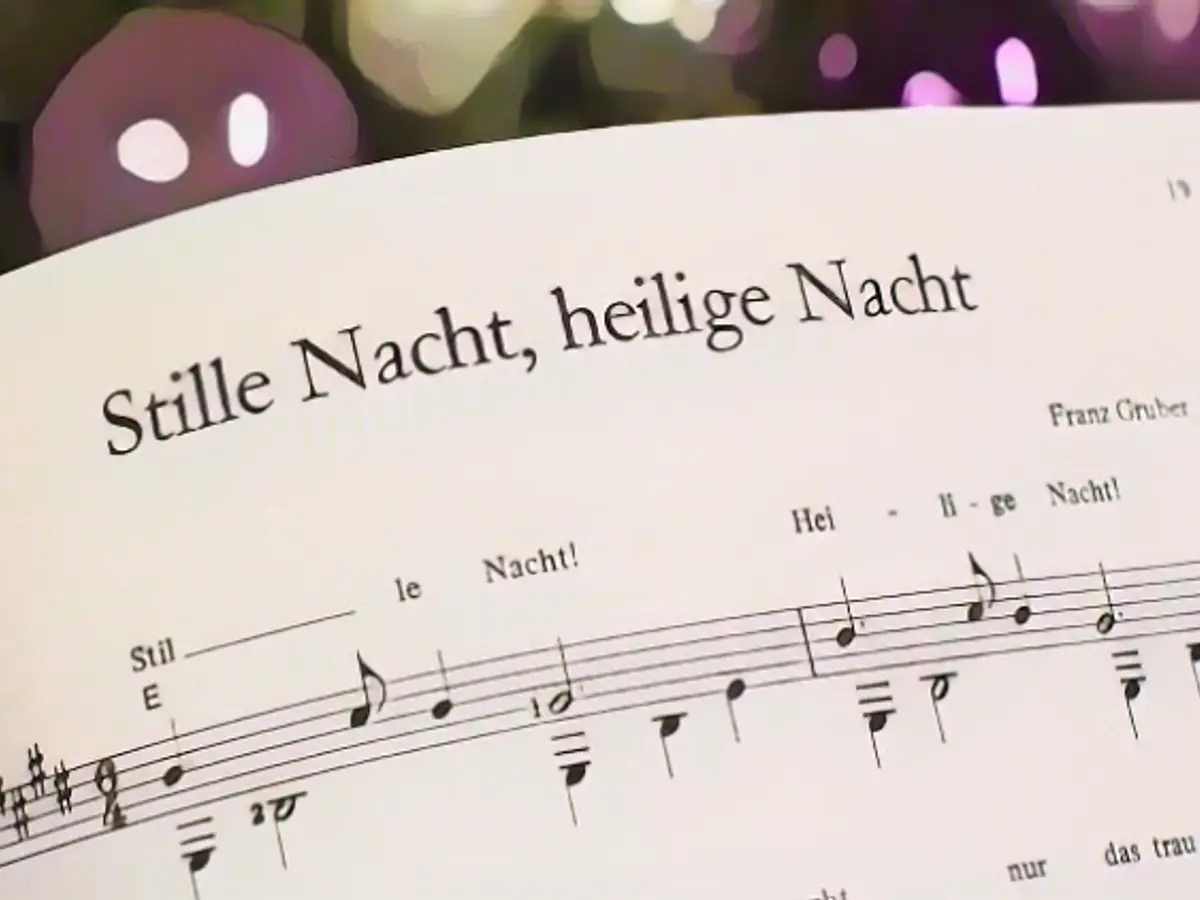Contemplative Christmas carols experience a revival
Things weren't quite so good for the contemplative Christmas poem back in 1978: "Zicke zacke Hühnerkacke", says Dickie in Loriot's classic sketch "Weihnachten bei Hoppenstedts". What about contemplative Christmas songs 45 years later?
Do "Silent Night" and "Merry Christmas" have a future? Or are Christian Advent and Christmas carols losing their significance in Germany as more and more people leave the church or have never belonged to it? Surprising answers come from cultural studies and theology. According to them, contemplative Christmas carols are currently experiencing a revival. Possible reasons: wars, crises and a longing gap in terms of spirituality and sentimentality.

"We conducted surveys at Christmas markets 20 years ago, right next to the church," says Gunther Hirschfelder, cultural scientist at the University of Regensburg. "But when we asked people what role the birth of Christ played in their lives, they thought it was a joke." As a researcher, Hirschfelder observes an almost paradoxical situation today: on the one hand, a permanent detachment of Christian meanings, confessions and symbols from everyday life, sometimes coupled with an almost fanatical hatred of the church. And on the other hand, a deep longing for the spiritual. In this mixed situation, he sees Christmas carols as a kind of exit strategy.
"In everyday life, we hardly dare to be sentimental. Talking about faith and God is pretty out in the mainstream. We wouldn't post that either," says Hirschfelder. But Christmas carols? No problem. They are not only heard at Christmas markets. According to a survey from 2021, one in four people sing them at home. Singing Christmas carols together in soccer stadiums or in front of town halls is also very popular. "Here we can belt out what we long for," says Hirschfelder. "This revival trend is surprisingly open to Christian songs. It's not just Christmas tree stuff. It also has something spiritual about it."
Luther has success with carols
Ansgar Franz, a Catholic theologian and liturgical scholar at the University of Mainz, can report on the origins of Christmas carols and how their meaning has changed. The hymnbook archive there is a source for the history of culture, piety and mentality. Church and Christmas hymns already existed in late antiquity, explains Franz. They were sung in German in this country. "It is assumed that the distance between the liturgical language Latin and the vernacular was so great that a bridge was needed." This was different to Italy, France or Spain, countries with Romance languages, which were closer to Latin.
Martin Luther took up the joy of German-language songs in church services during the Reformation. He wrote "Vom Himmel hoch", a Christmas carol based on a well-known folk melody. "The Reformation sang its victory," summarizes Franz. "The Catholic Church was completely surprised by the success of this movement, including through its songs." Thanks to the newly invented printing press, the triumphant advance resulted in the first hymnbooks, which triggered a wave of literacy in Protestant households, he adds. After all, it was good manners to be able to read them.
The Catholic Church followed suit with its own hymns and hymnbooks. However, the Council of Trent in the mid-16th century prescribed the Latin mass. German hymns were therefore relegated to the areas of devotion or pilgrimage for a long time, reports the theologian. As a result, reading in German was also less widespread until the Catholic Enlightenment - an educational deficit compared to Protestants.
Today's traditional German Christmas spirit, complete with Christmas tree, carols and presents, is very young in comparison. The historian and musicologist Juliane Brauer describes it in an essay as typical of the German Empire from 1871 onwards. Songs such as "Silent Night" and "O du fröhliche" date back to the first half of the 19th century, when the originally purely church-based celebration was extended into the middle-class, Biedermeier living room and the child became the center of family happiness. The Christmas carols of the time were mostly joyful or sweet.
Tutoring in the Catholic hymnal for the first time
The biblical Christmas story, which was still understood by the early Christians as a bitter experience of poverty and humiliation, was thus finally given a sugar-sweet coating. Historian Brauer calls this a preserved German Christmas feeling. It can often be associated with emotions and recalled as if at the touch of a button by singing or listening to Christmas carols.
But is the Christian context still understood? "For me, it was very surprising that the Pegida movement sang Christmas carols," says researcher Franz. "Because they tell the story of Joseph and Mary on the run. And then a movement that opposes migration sings that?" For the theologian, born in 1959, much has also been lost in the church. Since 2013, the Catholic hymnal has provided guidance for the first time: What do I do during Advent and on Christmas Eve? "I could never have imagined this break with tradition in my lifetime. The loss of trust in the churches has accelerated this enormously."
Searching for lost worlds
It is possible that the power of the melody is stronger than the lyrics today. "These are chords and refrains with a positive effect. A good Christmas carol can do what Abba and the Beatles did," says scientist Hirschfelder. Christian songs have long been part of German pop culture, sung by Nena, Frank Schöbel and Helene Fischer. They are also a German export. "Silent Night" exists today in around 300 languages and dialects.
However, researcher Hirschfelder believes that the de-sacralization has bottomed out. "The more worlds in which we grew up are lost, the more anchors of tradition we throw out," he says. And Christmas carols are a stone "on which such an anchor can get stuck".
Read also:
- Snow chaos further restricts Bavaria
- "Zoltan" sweeps across the country - disruptions to rail traffic
- "Zoltan" brings masses of water, rail chaos and suspected tornadoes
- Heavy rain and snow expected after storm depression
In the context of this article, here are two sentences that contain the given words:
- The revival of contemplative Christmas carols is attracting people from various religions, not just Christians, as they see it as an opportunity to connect with their spirituality during the festive season.
- International music festivals often include Christmas choirs that perform traditional carols in churches around the world, celebrating the universal spirit of the holiday season across different religions.
Source: www.ntv.de






